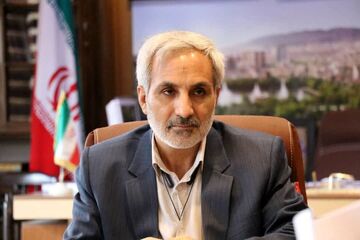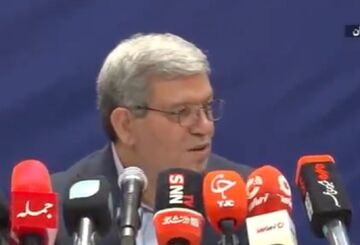TEHRAN(Bazaar) –Shireen Tahmaasb Hunter, a professor of political science at Georgetown University, tells the increased US attention to China and the pacific region never meant that the US would ignore the Middle East. The US is engaged in the Middle East for a variety of strategic and political reasons, including its commitment to Israel's survival and security.
She says: “Biden's trip to the Middle East is mainly about Israel and Iran. Biden, too, wants to speed up the pace of Saudi-Israeli cooperation and encourage Saudi Arabia to establish formal relations with Israel.”
Following is the text of the interview:
Bazaar: While it was said that the American policy regarding the Persian Gulf has changed due to the containment of China, we are witnessing the importance of the region’s oil after the war in Ukraine. Do you agree with this argument?
Hunter: As I said at the time, the increased US attention to China and the pacific region never meant that the US would ignore the Middle East. The US is engaged in the Middle East for a variety of strategic and political reasons, including its commitment to Israel's survival and security. In addition, the Us has an interest in keeping its position and influence in the Arab side of the Persian Gulf. The Us has bases in the region for this purpose. The United States is also unlikely to leave the region out of concern that its competitors, such as Russia and China, and hostile regional actors notably Iran, could fill the void. Access to the region's oil, although more important now, is only one of the reasons for Washington's interest in the region.
Bazaar: Biden's trip to the region is an attempt to find a way to reduce oil prices with Saudi’s help. Will this happen?
Hunter: Biden's trip to the Middle East is mainly about Israel and Iran. Biden, too, wants to speed up the pace of Saudi-Israeli cooperation and encourage Saudi Arabia to establish formal relations with Israel. Of course, the US would also want Riyadh to increase its oil production. However, for that to happen, the US would have to make other concessions to Saudi Arabia in terms of arms sale, Iran, and Yemen. The US seems to have already agreed to the sale of offensive arms to Riyadh, although the Congress might not agree to this arrangement. The criticism of Saudi policies in Yemen have also subsided.
Bazaar: The United States is trying to encourage Saudi Arabia to stage a coup against Russia by withdrawing from the OPEC+ agreement and subsequently increasing oil production to improve its price in Western countries. Is this happening?
Hunter: The US and Russia are involved in a proxy war in Ukraine. Moscow has used its energy weapon to undermine the US and European economies and force them to accept Russian demands in Ukraine and Europe. So, naturally, Washington is trying to neutralize Moscow's energy weapon by convincing its Arab friends to increase their oil production.
Bazaar: What effect will Biden's trip to the region has on nuclear negotiations with Iran?
Hunter: Negotiations with Iran would not succeed unless Iran shows willingness to reduce its demands, even though they are legitimate. Already, Biden has said that he would not remove the IRGC from the terror list even if it meant the death of the JCPOA. This is a concession both to Israel and the Gulf Arabs. Biden also referred to the use of force against Iran, albeit as the last resort.
Bazaar: Will this trip affect the negotiations between Iran and Saudi Arabia?
Hunter: I have ever been optimistic about the success of Iran's efforts to improve relations with Arab states, in general, and Saudi Arabia, in particular, without improving relations with the West and altering its revolutionary regional policies. Arab unease with Iran has deep roots and the policies of the IRI have exacerbated their misgivings about Tehran. Countries, like Saudi Arabia and Egypt, also are competitors with Iran for influence in the region. Moreover, Arabs believe that, as a non-Iran and mostly Shia state, Iran is not a legitimate player in the Arab world. Thus, despite the IRI's support for Arab causes, its relations with Arab states, including even Iraq, a majority Shia country, remain tense. The only way Arabs would be willing to reconcile with Iran is for Iran to become economically and politically strong and have good relations with key international players and come out of isolation.
In short, recent trends in the Middle East are likely to worsen Iran's security conditions, unless its leader fundamentally revise significant aspects of the IRI's foreign policy
















نظر شما